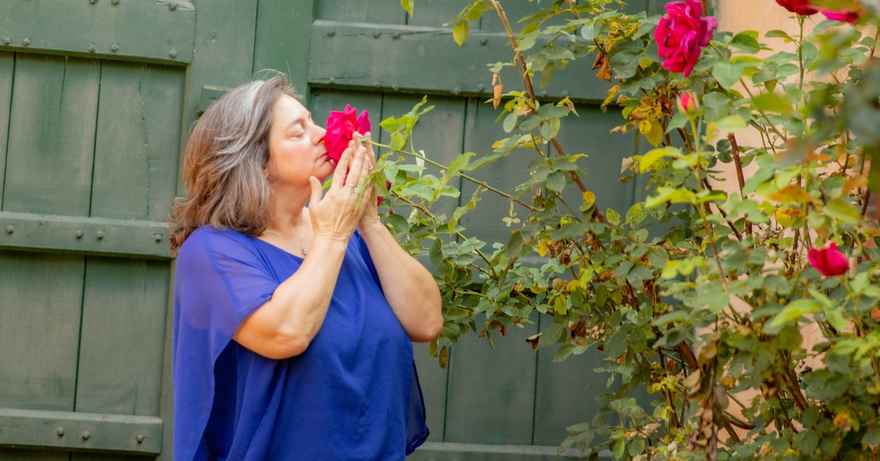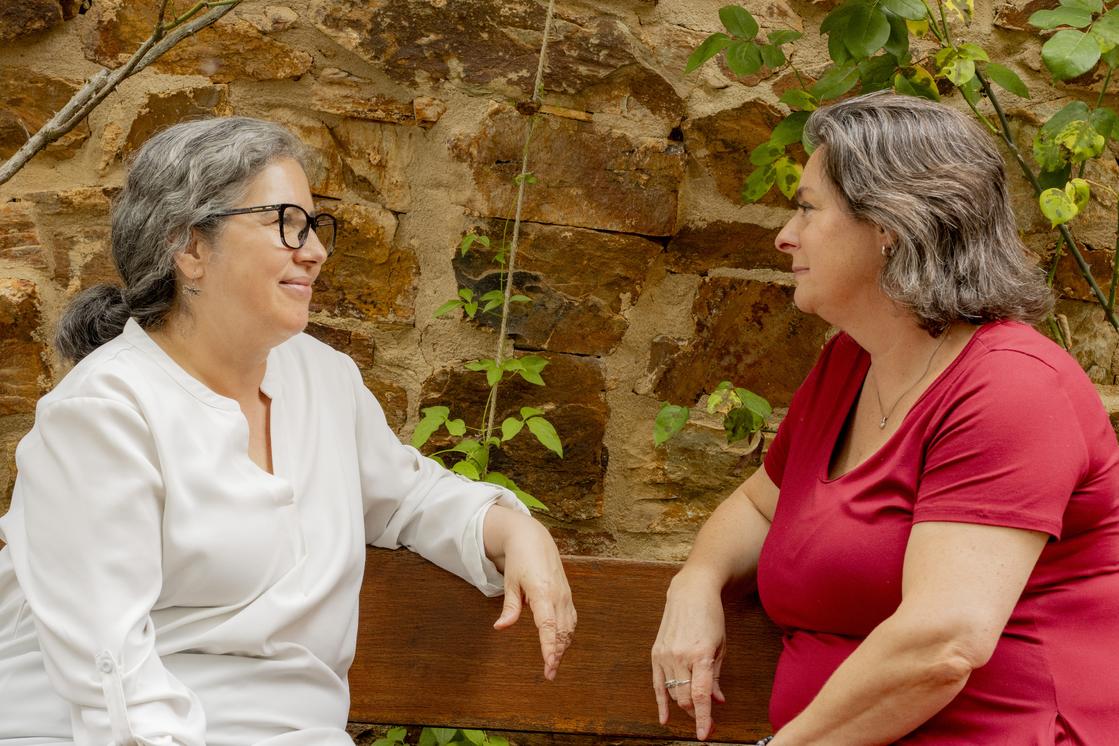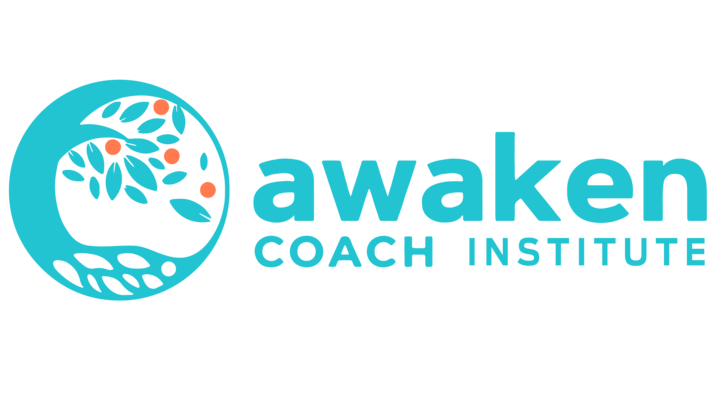What makes MCC-level coaching unique?

There's a moment in every coach's journey when technique falls away and something more profound emerges. It happened to me during a session last week – my client and I sat in silence for what felt like minutes, yet neither of us rushed to fill the space. In that sacred pause, something shifted. Not because of what I said or did, but because of what I allowed to be.
This is the essence of MCC-level coaching. It's not about accumulating more tools or perfecting your questioning technique. It's about embodying a level of mastery where conversations become effortless, transformational, and deeply connected.
At Awaken Coach Institute, we believe that reaching Master Certified Coach status represents something far more meaningful than the credential itself. While fewer than 4% of the world's 60,000 ICF-credentialed coaches achieve MCC status, what makes this level truly unique isn't its rarity – it's the fundamental shift in how we show up as coaches and as human beings.
Key Takeaways
- MCC coaching transcends technique to embody a way of being that creates transformational space for clients
- The journey from PCC to MCC involves shifting from "doing" to "being," from problem-solving to presence
- Masterful coaching focuses on the "Who" of the client (their essence) rather than just the "What" (their challenges)
- MCC-level presence creates a sacred container where clients discover their own wisdom naturally
- True mastery emerges through vulnerability, spaciousness, and deep trust in the coaching process
The Sacred Shift from Doing to Being
When I first began preparing coaches for their MCC coach certification, I noticed something curious. The most experienced coaches often struggled the most. Why? Because becoming an MCC isn't about doing more – it's about being more.
Think about it. By the time you've logged 2,500 coaching hours (the requirement for MCC), you've mastered every technique in the book. You can ask powerful questions in your sleep. Your ability to reflect and reframe is impeccable. Yet MCC asks something different of you entirely.
It asks you to let go.
In our achievement-obsessed culture, this feels almost heretical. We're conditioned to believe that mastery means knowing more, doing more, achieving more. But MCC skill level is when the mindset of the coach is no longer identified with being a problem-solver. Instead, we become witnesses to our clients' own unfolding wisdom.
From Performance to Presence
The coaching industry, particularly in its earlier stages, has been deeply influenced by corporate models of performance and achievement. There's nothing inherently wrong with goal-setting and accountability. These have their place. But masterful coaching invites us into something more spacious.
To explore what this transformational shift looks like in practice, I invite you to watch What Does It Mean to Be a Transformational Coach?
In this short video, I share how aligning your values, beliefs, and purpose creates the foundation for lasting transformation—both for you and for those you coach.
I remember working with a client who came to me with a five-year strategic plan. She wanted accountability, metrics, measurable outcomes. Yet as we sat together, I sensed something else beneath her carefully constructed goals – a longing she couldn't quite name. Instead of diving into her action items, I simply asked, "What wants to emerge through you?"
The question hung in the air. Her eyes filled with tears.
This is what distinguishes MCC-level coaching. More fully attending to the Who content of your client is what distinguishes MCC skill level coaching. We're not abandoning the practical, but we're holding it within something larger – the fullness of who our clients are becoming.
The Art of Sacred Space
When coaches in our coach certification programme first encounter MCC-level coaching, they often ask, "But what do you actually DO?" The answer is both simple and revolutionary: we hold space.
Not the kind of space-holding that's become a buzzword in coaching circles. I'm talking about creating what I call a sacred container – a quality of presence so profound that transformation becomes inevitable. At the MCC level, the coach needs to be a sacred space for the client's learning, growth, and transformation.
This requires us to:
Release our need to add value. Our value isn't in our insights or solutions. It's in our capacity to witness our clients' greatness without needing to prove our own.
Trust the silence. Those uncomfortable pauses? They're not empty. They're pregnant with possibility. MCC coaches learn to rest in these moments rather than rush through them.
Embrace not knowing. The coach humbly recognises they do not know the 'right way or answer' for this client. This humility creates space for something new to emerge.
If you’d like to explore what this looks like in real coaching practice, listen to The Art of MCC-Level Coaching with MCC Coach Lisa Pachence.
In this episode of Awaken Voices, Lisa and I unpack what it truly means to coach from mastery. Where ego softens, trust deepens, and transformation happens in simplicity and stillness.

The Paradox of Depth and Lightness
Here's what surprises many coaches about MCC-level work: it's simultaneously deeper and lighter than what came before. We're diving into the depths of human experience whilst maintaining what I call "sacred playfulness."
Just yesterday, I was coaching someone through a profound career transition. We explored themes of identity, purpose, mortality – heavy stuff. Yet there was laughter too. Moments of delight. A quality of ease that allowed difficult truths to surface without drama or force.
This is the paradox of mastery. These aren't just skills; they're ways of being that transform your coaching from transactional to transformational. We're holding both the gravitas of our clients' journeys and the lightness of knowing that transformation doesn't have to be hard.
Partnership as a Radical Act
In a world that valorises expertise, MCC coaching takes a radical stance: we're not the experts on our clients' lives. They are.
Partnership is about trusting that the Thinker has the answers within them. This isn't just a nice philosophy – it's a complete reorientation of the coaching relationship. We're not consultants dispensing wisdom. We're not therapists analysing problems. We're partners in a dance of discovery.
When I work with coaches preparing for MCC, I often see them struggle with this shift. They want to contribute, to demonstrate their value, to justify their fee. But masterful coaching asks us to find our worth not in what we know, but in how deeply we can listen, how fully we can trust, and how completely we can partner without leading.
The Journey Through Vulnerability
Something we don't talk about enough in coaching circles: the journey to MCC will crack you open. It has to. Because you cannot hold space for another's transformation without having walked through your own.
I've sat with my own coach, tears streaming down my face, confronting parts of myself I'd rather not see. I've questioned everything – my motives, my methods, my very calling as a coach. This isn't failure. This is the curriculum.
Pursuing an MCC certification requires a coach to undergo ongoing professional development and self-reflection. But it's more than professional development. It's soul development. It's learning to be with our own shadows so we can be with our clients' shadows without flinching.
Beyond the Transactional
The difference between good coaching and masterful coaching often comes down to this: are we operating in the realm of transaction or transformation?
Transactional coaching has its place. It helps people achieve goals, solve problems, and improve performance. But MCC-level coaching opens a different door entirely. We're not just helping clients get from point A to point B. We're inviting them into a new way of being in the world.
I think of a recent session where my client came wanting to discuss a difficult conversation with her boss. Twenty minutes in, we were exploring her relationship with authority, traced back to childhood patterns of seeking approval. By the session's end, she wasn't just prepared for a conversation – she was standing in a new relationship with her own power.
This is what becomes possible when we trust the process, when we follow the client's wisdom rather than our own agenda.
The Embodiment of Mastery
The MCC credential represents the highest level of coaching mastery, reserved for seasoned coaches. But here's what the credentialing bodies don't always emphasise: mastery isn't something you achieve. It's something you embody, moment by moment, breath by breath.
Every session is an opportunity to practise this embodiment. To notice when we're pushing. To recognise when we're performing. To gently return to presence, again and again.
Some days, I nail it. The session flows like a river, effortless and powerful. Other days, I catch myself trying too hard, wanting to impress or fix or save. The difference now is that I notice. I smile at my humanity. I return to breath, to presence, to partnership.
This is perhaps the greatest gift of the MCC journey – learning to extend the same compassion to ourselves that we offer our clients.
Creating Transformation Through Trust
At the heart of MCC-level coaching lies a profound act of trust. Trust in our clients' inherent wisdom. Trust in the coaching process. Trust in something larger than ourselves that moves through the coaching conversation.
This trust isn't passive. It's an active, embodied choice we make moment by moment. When a client struggles, we trust their capacity to find their way through. When silence stretches uncomfortably long, we trust what wants to emerge. When we don't know what to ask next, we trust that not knowing is exactly where we need to be.
Recently, during a session at our Spain Coach training Retreat, I watched a coach-in-training wrestle with this trust. Her client was stuck, circling the same issue repeatedly. Every fibre of her being wanted to jump in with a solution. Instead, she breathed. She waited. She trusted.
And then, like sunrise, her client's face changed. "Oh," the client said softly. "I see it now."
This is the magic we're cultivating, not the magic of having answers, but the magic of holding space for answers to emerge.
A Different Measure of Success
That's why we teach with the MCC (Master Certified Coach) level in mind from the very first day of our Level 1 course. There's a vast difference between transactional, behavioral, performance, and achievement-based coaching and the transformational depths that we enter as senior coaches. It's a new way of being together as connected souls.
How do we measure success at the MCC level? Not by problems solved or goals achieved, though these may happen. We measure it by the quality of presence we bring. By the depth of partnership we create. By the transformation that ripples out from our coaching conversations into our clients' lives and beyond.
The ICF's performance evaluations certainly matter. The competencies must be demonstrated. But what makes MCC coaching truly unique is what happens between the competencies, in the space, in the silence, in the sacred container we hold.
The Call to Depth
If you're feeling called to this level of mastery, know this: the journey will ask everything of you. It will challenge your assumptions, dissolve your ego, and rebuild you from the inside out. It's not for everyone.
But for those who say yes, who commit to this path of depth and presence and transformation, something extraordinary awaits. Not just a credential. Not just recognition. But a way of being in service that transforms both coach and client in ways we can barely imagine.
The world needs more coaches operating at this level of mastery. Not because we need more certificates on walls, but because we need more humans capable of holding transformational space for other humans. In these times of rapid change and collective uncertainty, this kind of deep, soulful coaching isn't a luxury – it's a necessity.
As you consider your own journey toward mastery, I invite you to pause. To breathe. To ask yourself not "How can I do more?" but "How can I be more?"
How can you bring more presence to your coaching? More trust? More spaciousness? More soul?
The path to MCC isn't about climbing a ladder. It's about descending into the depths of what it means to be truly present with another human being. It's about learning to hold space for transformation without needing to direct it. It's about discovering that in our not knowing, in our vulnerability, in our willingness to simply be with what is, lies our greatest power as coaches.
This is what makes MCC-level coaching unique. Not the hours logged or the competencies demonstrated, but the fundamental shift in how we understand our role as coaches. We're not fixers or advisors or even teachers. We're witnesses to the magnificent unfolding of human potential.
And that, my friend, is sacred work indeed.
Begin Your Journey Toward Mastery
Every MCC-level coach begins as a student of presence, learning not just how to coach, but how to be. Whether you’re ready to refine your skills through mentor coaching or craving a deeper, more embodied experience of transformation, we would love to walk alongside you.
We host one MCC in Community cohort each year, a small, intimate group of no more than nine coaches. This five-month journey blends mentor coaching, supervision, and reflective practice within a loving, global community of peers who are committed to growing toward mastery. Explore the MCC in Community Pathway
Or, if you’re longing for a more immersive experience of relearning and presence, join us in Spain for our in-person transformational coaching retreat. Here, surrounded by nature and held in community, you’ll rediscover what it means to listen deeply, coach courageously, and embody mastery from the inside out. Learn more about our transformational Spain retreat
Whichever path you choose, you’ll be invited into the heart of Awaken’s work, a community where mastery begins not with doing more, but with being more.
About the Author: Christi Byerly, MCC, is the founder and CEO of Awaken Coach Institute. Her coaching process motivates you to build a community of empathy and grace around you – and to live your mission as part of something bigger than you are. With over 15 years of coaching experience, Christi has trained hundreds of new coaches and maintains a thriving practice focused on depth, presence, and authentic transformation.
Frequently Asked Questions About MCC Coaching
1. What’s the real difference between PCC and MCC coaching?
The shift from PCC to MCC is less about adding new techniques and more about deepening presence. While PCC-level coaching balances what the client wants to achieve with who they are, MCC-level coaching fully embodies trust in the client’s wisdom to emerge naturally. It’s a transition from doing to being, from guiding to allowing, where transformation unfolds through presence.
2. How long does it typically take to achieve MCC certification?
The International Coaching Federation (ICF) requires 2,500 hours of coaching experience for MCC, but the real journey is less about time and more about transformation. Many coaches spend 7–10 years developing their practice before applying, though readiness depends on how deeply you’ve integrated the competencies and done your own inner work. Some coaches reach this level after five years of immersive, reflective practice. others after fifteen. The key is embodiment, not the clock.
3. When should I start preparing for my MCC?
It’s never too early. We encourage coaches to begin integrating MCC-level mastery even as they work toward their PCC credential. If you have 501 logged hours, you’re ready to join our MCC in Community pathway, a five-month mentor coaching and supervision program that supports your growth long before you submit your application. The earlier you begin practicing MCC-level awareness, the more natural the transition becomes.
4. Can MCC-level coaching work in corporate or organizational settings?
Absolutely. In fact, MCC-level coaches are often sought out for executive and leadership development because of their capacity to hold space for transformation, not just performance. At this level, coaching moves beyond metrics and KPIs to address purpose, meaning, and authentic leadership, creating deeper cultural impact and sustainable change across organizations.
5. How does Awaken’s training prepare coaches for MCC-level mastery?
At Awaken Coach Institute, we teach with MCC-level presence in mind from day one. Whether you begin your journey in our virtual certification programs or join an immersive retreat in Spain, you’ll experience coaching as both personal and professional transformation. Our programs nurture the same deep listening, self-reflection, and spiritual alignment that define MCC-level coaching, long before you apply for the credential.
6. How can I experience MCC-level transformation in person?
If you’re craving a more immersive experience of MCC-level coaching, join us for Awaken’s Spain Coaching Retreat, a transformative, in-person journey that allows you to relearn the art of coaching through presence and community. You’ll deepen your practice in the company of senior coaches and MCC observers, reconnecting with the essence of who you are as a coach and as a human being. Learn more about our transformational Spain retreat here.

0 comments
Leave a comment
Please log in or register to post a comment